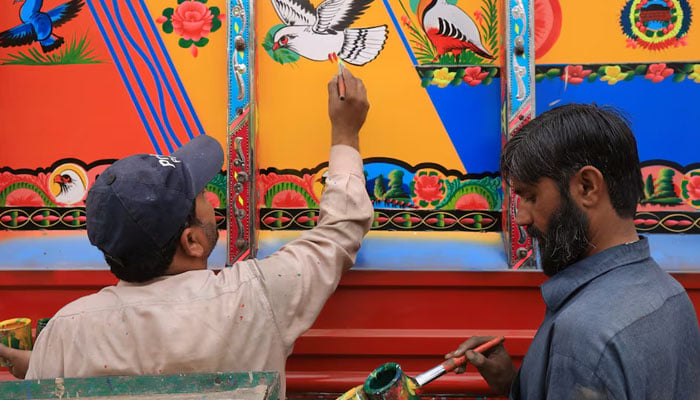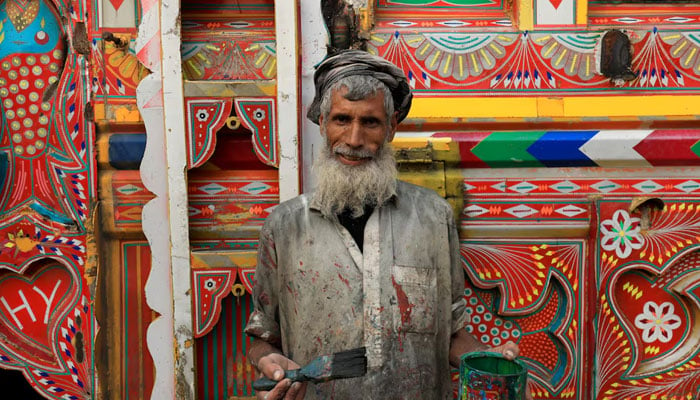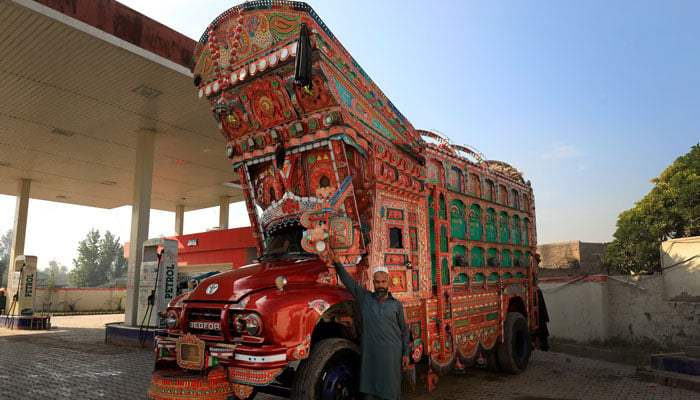Pakistan is a country where culture and expressions of art are closely linked. Truck art is one such key example as it captivates the country’s rich creative heritage, reflecting the nation’s rich history, traditions, and values.
Pakistan’s trucks, for decades, have been transformed into moving canvases. Trucks, lorries, and rickshaws were being reborn as dazzling works of art, adorned with intricate designs, colourful patterns, and poetic calligraphy.
Pakistan’s truck art has become a cultural ambassador of sorts, captivating the hearts of art lovers and tourists worldwide.
This dazzling display of colour and craftsmanship is a testament to Pakistan’s rich cultural heritage and a source of pride for the nation.
“I pour my heart and soul into every design, every brushstroke, and every detail. For me, truck art is not just about decorating vehicles, it’s about creating moving pieces of art that bring joy and beauty to people’s lives,” truck artist Sohail Khan said.
He said that he is included towards writing about social issues like education, healthcare, and women’s rights on trucks. It’s a way to raise awareness and inspire change, he remarked.
Sohail further emphasised that the painters spend countless hours decorating the truck with their professional artwork.
He continued that truck drivers develop a deep emotional connection with their vehicle, which transforms into a home away from home during their extended journeys.
This bond inspires them to lavishly decorate their trucks, making each vehicle a unique reflection of their personality, culture and travels.
We want to show the world that truck art is not just a form of decoration, but a reflection of our country’s rich cultural heritage, he stated.
According to an official at Lok Virsa, for decades, the Lok Virsa Museum has been tirelessly promoting Pakistan’s centuries-old truck art tradition, recognising its significance as an integral part of the country’s rich cultural heritage.
He said that truck art was not just a form of art but was in fact a way of life which reflected their values, our traditions, and our culture.
As long as we continue to create and appreciate this art form, it will remain an integral part of Pakistani identity, noted the official.





